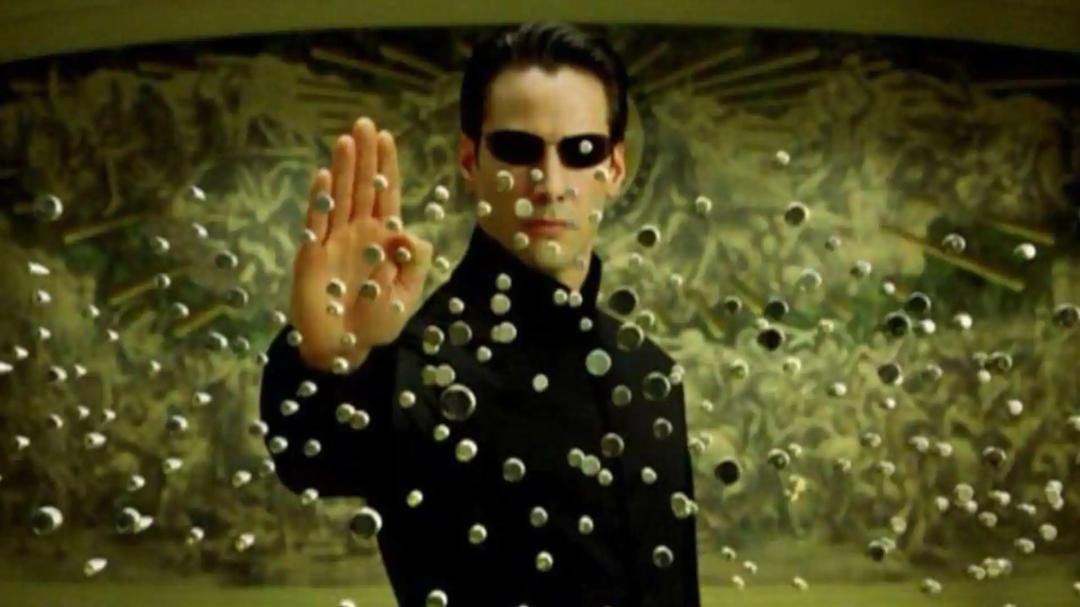
Physicists prove universe isn’t a computer simulation like in ‘The Matrix’
The idea that our universe is a computer simulation, popularized by the iconic movie “The Matrix,” has been a topic of debate among philosophers, scientists, and technology enthusiasts for decades. However, a recent study by physicists from the University of British Columbia Okanagan (UBCO) has mathematically proved that this concept is not feasible. According to a press release, the researchers have demonstrated that the universe is not a computer simulation, but rather a complex system built on “a type of understanding that exists beyond the reach of any algorithm.”
The study’s co-author explained that the fundamental laws of physics cannot be contained within space and time because they generate them. This statement has significant implications for our understanding of the universe and its underlying structure. The researchers’ findings suggest that the universe is a far more intricate and dynamic system than a computer simulation could ever replicate.
The concept of the universe as a computer simulation, also known as the “Simulation Hypothesis,” proposes that our reality is a simulation created by a more advanced civilization. This idea has been explored in various fields, including philosophy, physics, and computer science. However, the UBCO study provides strong evidence against this hypothesis, demonstrating that the universe is a unique and complex system that cannot be reduced to a simple computer program.
The researchers’ approach to debunking the Simulation Hypothesis involved a deep analysis of the fundamental laws of physics and their relationship with space and time. They discovered that these laws are not bounded by the constraints of space and time, but rather, they give rise to these concepts. This understanding is crucial in comprehending the nature of reality and the universe as a whole.
The study’s findings have significant implications for various fields of research, including physics, philosophy, and computer science. The researchers’ work challenges the idea that the universe can be replicated or simulated using computational models, highlighting the limitations of current technology and our understanding of the universe.
The concept of the universe as a complex system built on “a type of understanding that exists beyond the reach of any algorithm” is a fascinating one. It suggests that there are aspects of reality that cannot be captured by computational models or algorithms, no matter how advanced. This idea has significant implications for fields such as artificial intelligence, where researchers are attempting to create intelligent machines that can simulate human thought and behavior.
The UBCO study’s findings also raise important questions about the nature of reality and our place within the universe. If the universe is not a computer simulation, what is its true nature? What are the underlying principles that govern its behavior? These questions have puzzled philosophers, scientists, and thinkers for centuries, and the UBCO study provides a significant step forward in our understanding of the universe and its mysteries.
In conclusion, the UBCO study provides strong evidence against the Simulation Hypothesis, demonstrating that the universe is not a computer simulation. The researchers’ findings suggest that the universe is a complex system built on “a type of understanding that exists beyond the reach of any algorithm,” highlighting the limitations of current technology and our understanding of the universe. As we continue to explore the mysteries of the universe, the UBCO study’s findings will undoubtedly have significant implications for various fields of research and our understanding of reality.
The study’s co-author noted that the fundamental laws of physics cannot be contained within space and time because they generate them. This statement has significant implications for our understanding of the universe and its underlying structure. The researchers’ work challenges the idea that the universe can be replicated or simulated using computational models, highlighting the limitations of current technology and our understanding of the universe.
The concept of the universe as a complex system built on “a type of understanding that exists beyond the reach of any algorithm” is a fascinating one. It suggests that there are aspects of reality that cannot be captured by computational models or algorithms, no matter how advanced. This idea has significant implications for fields such as artificial intelligence, where researchers are attempting to create intelligent machines that can simulate human thought and behavior.
As we continue to explore the mysteries of the universe, the UBCO study’s findings will undoubtedly have significant implications for various fields of research and our understanding of reality. The study’s findings provide a significant step forward in our understanding of the universe and its mysteries, highlighting the complexities and intricacies of the cosmos.
The UBCO study’s findings also raise important questions about the nature of reality and our place within the universe. If the universe is not a computer simulation, what is its true nature? What are the underlying principles that govern its behavior? These questions have puzzled philosophers, scientists, and thinkers for centuries, and the UBCO study provides a significant step forward in our understanding of the universe and its mysteries.
In the end, the UBCO study’s findings demonstrate that the universe is a far more intricate and dynamic system than a computer simulation could ever replicate. The researchers’ work challenges the idea that the universe can be replicated or simulated using computational models, highlighting the limitations of current technology and our understanding of the universe.






